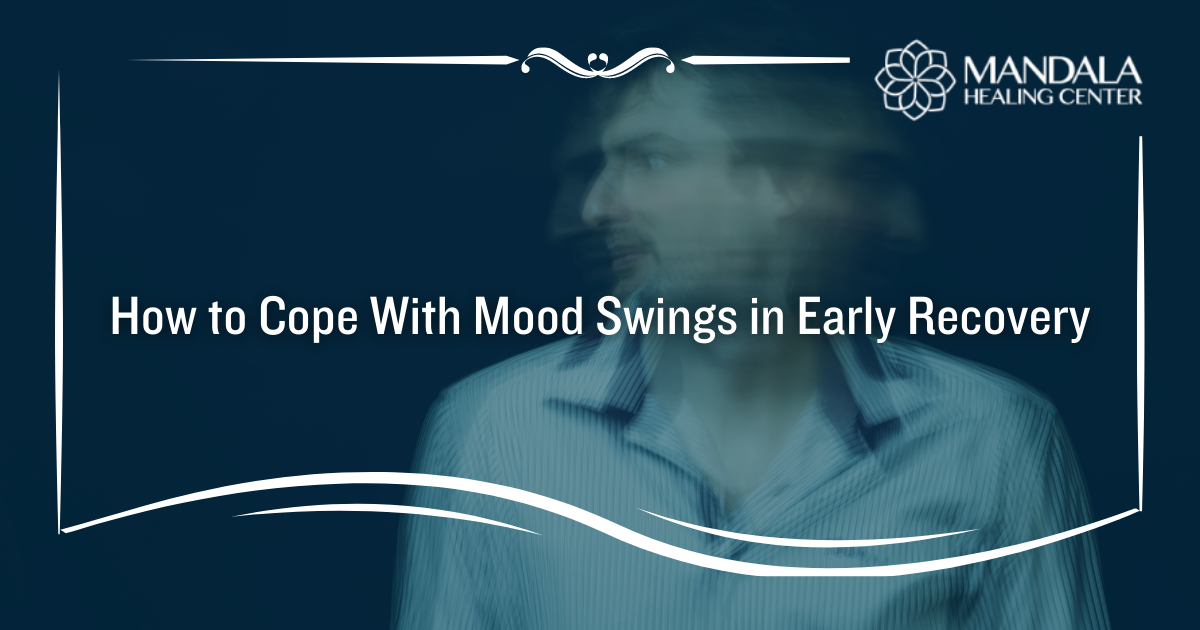Addiction takes a toll on your mental and physical health. People who live with substance abuse and addiction may experience a range of life-changing, sometimes life-threatening consequences, including chronic illness, new or worsening mental illness symptoms, loss of jobs and relationships, and fatal accidents or overdoses.
Choosing to get treatment to stop using drugs or alcohol can save your life. Recovery from addiction can give you a fresh start in life and allows you the chance to live the healthy, fulfilling lifestyle you choose.
You may experience physical or emotional side effects as you go through the healing process. Many people experience strong, disruptive mood swings in early recovery that may make them feel out of control.
If you are experiencing mood swings in early recovery or you want to support someone else in the process, understanding more about why this happens and what steps to take may help you manage them.
If you or a loved one needs substance abuse treatment or support in recovery, reach out to the Mandala Healing Center staff today.
Why Do People Sometimes Have Mood Swings in Early Recovery?
The first few weeks or months of sobriety can be physically and emotionally uncomfortable and can include irritability, anger, anxiety, and depression. There are several theories about why people experience mood swings in early recovery.
First, prolonged drug or alcohol abuse can change your body and brain. These changes can affect the way you feel and think for a long time after you stop using substances. As your body begins to adapt to the absence of drugs or alcohol, you may experience quickly shifting physical and emotional side effects, including mood swings.
Another possible explanation for people’s mood swings is that many people use substances to dull emotional pain. When they are no longer using drugs or alcohol, they are left with the full weight of their emotional discomfort.
The shift from using drugs and alcohol to sobriety can be drastic. Everything in your life changes, sometimes very quickly. Many people experience stress, anxiety, sadness, or anger during periods of change or uncertainty–and this may show up as mood swings in early recovery.
Whatever the reasons for your mood swings, you can make some changes in your lifestyle that can lead to real relief.
6 Tips to Manage Mood Swings in Early Recovery
If you’re in recovery and find yourself having massive uncharacteristic mood swings, you can take back some of the control you might feel you’ve lost. Taking better care of your body, mind, and relationships can have a significant impact on the way you feel and may curb some of those mood swings in early recovery.
1. Go to therapy
It is essential to learn new, healthy ways to understand and cope with your emotional discomfort and life’s challenges. During therapy sessions, you will work with a mental health professional who can help you set goals and teach you valuable coping skills.
2. Include your family
Treatment can make you feel confident in your ability to make a fresh start in life. However, many people find that the old patterns, beliefs, and roles their family has can impair their ability to move forward. Family therapy is essential to improve communication and cooperation and get everyone on the same page about your recovery.
3. Swap destructive habits for healthy ones
Addiction can lead to some pretty destructive habits, including eating irregularly, getting less sleep, and being inactive. During recovery, it is essential to focus on overall health and wellness, including:
- Eating: Eat regularly and focus on getting balanced nutrition. Include more produce, lean proteins, healthy fats, and fiber in your diet. Drink plenty of water and avoid excessive amounts of caffeine and sugar.
- Sleeping: Develop a healthy bedtime routine that includes going to bed at the same time each night, keeping your sleep environment cool and dark, and skipping caffeine in the afternoon.
- Exercising: Find a movement you enjoy and practice it regularly. This can mean running, walking, doing yoga, dancing, or any other activity that gets you moving. Even small amounts of exercise can boost your endorphins and increase your self-esteem. It can also help you get better sleep and feel more energized throughout the day.
4. Consider taking medication
If your mood swings in early recovery are destructive or interfere with your ability to function, you may benefit from taking medications to help you manage them. Some medications can reduce anxiety, depression, or irritability and improve your overall mood stability. Discuss your concerns with your doctor.
5. Practice gratitude
Some research shows that simply reminding yourself about what you are grateful for can boost your mood and help you stay focused on moving forward in recovery. Take a few moments each morning or evening to think of something you are grateful for. It doesn’t have to be a big thing–it may be a good walk, nice weather, time with a loved one, or just having enough to eat.
6. Embrace mindfulness
Practicing mindfulness means learning how to identify your emotions without acting on them. In time, people who practice mindfulness can have better control over their reactions and improve their overall feeling of well-being. There are many ways to practice mindfulness. You may try meditation, either by following a guided practice or simply sitting in stillness. Or, you could explore other ways to be mindful, such as mindful eating or spending time connecting to nature.
As you move through the early days of recovery, remember that you are going through a life-changing process and are likely to have a range of emotions. Be gentle with yourself and patient with the process.
Get Help Now
If you or a loved one requires substance abuse treatment or needs support in recovery, reach out to the Mandala Healing Center specialists today.












